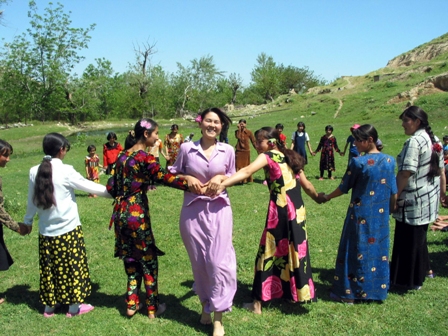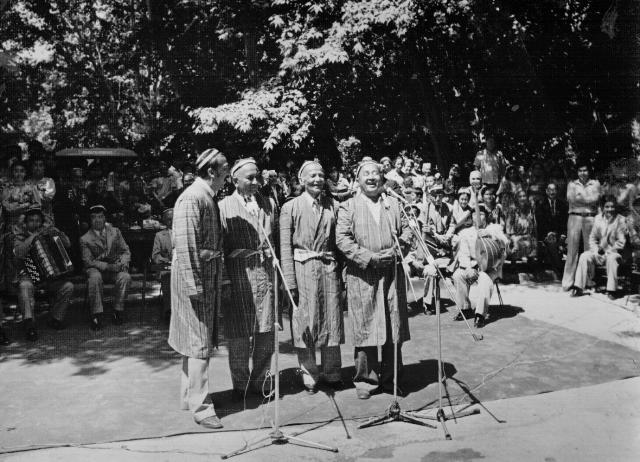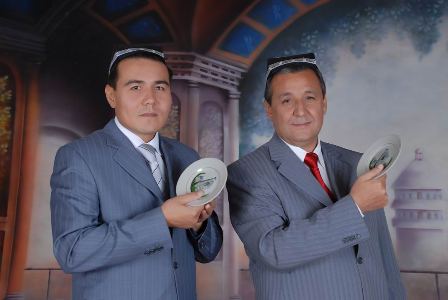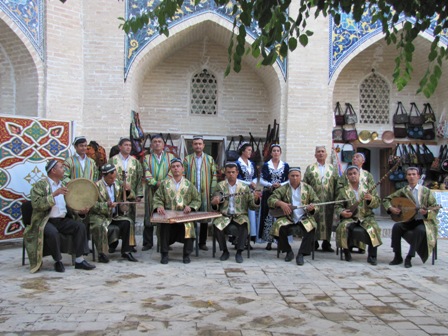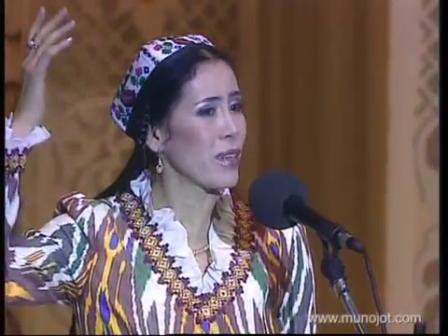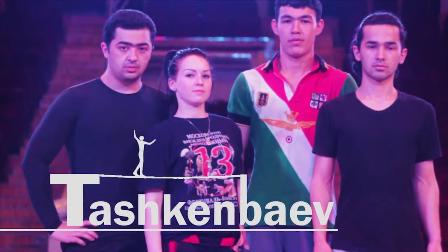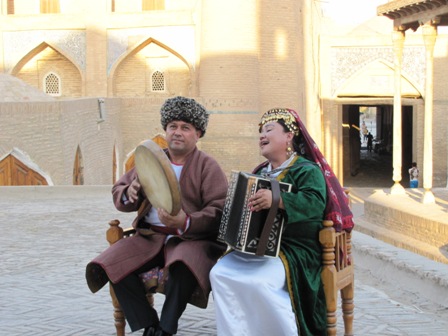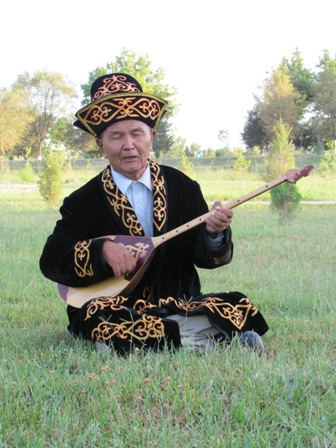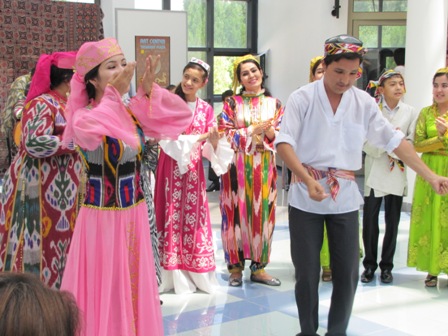Acknowledgements
Taking advantage of this opportunity, we would like to thank all our partners, who provided kind support during the implementation of the project "Facilitating ICH Inventory-Making and Utilising Online Tools for ICH Safeguarding in the Central Asian Region" and in making possible the present website.
In the first place we are grateful to International Information and Networking Centre for Intangible Cultural Heritage in the Asia-PacificRegion under the auspices of UNESCO (ICHCAP), which makes its effective contribution to the safeguarding of ICH of Uzbekistan. In particular, we want to mention its tireless efforts in safeguarding of not only of the intangible cultural heritage in East Asia but also in the whole Central Asia. And we want to note that it was a privilege for us to work with its skillful staff, discuss many issues in the field of ICH and get constant assistance in relation to the project-related matters. Moreover, we want to emphasize kind financial support provided by this organization, which made it possible for us to develop the present website.
We would like to extend our sincere thanks to the National Commission of Uzbekistan for UNESCO as well. In fact, it is the organization, which has been providing its invaluable advice throughout the implementation of not only the above-mentioned project but also many others. We also want to point out its support provided in relation to design and content of the website.
In addition, we would like to express our gratitude to the International Institute for Central Asian Studies (IICAS) for active participation in the above-mentioned project and helping in many administrative and financial matters.
Last but not least, we are grateful to UNESCO Office in Tashkent which has been collaborating with us for a long time and has been providing with its unique insights and expertise.
Below you will find brief information on each of our partners.
NATIONAL COMMISSION OF THE REPUBLIC OF UZBEKISTAN FOR UNESCO
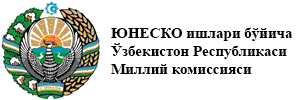
According to the Article VII of the UNESCO Constitution of 1945, each UNESCO Member State shall create the National Commission for UNESCO. It serves as a coordinating organization of the state for the UNESCO programmes. Notably, UNESCO is the only sister-organization of the United Nations that established the system of National Commissions.
The National Commission of the Republic of Uzbekistan for UNESCO was founded on 29 December 1994 by the Resolution of the Cabinet of Ministers No.629. Relevant information concerning the main goals and objectives of the Commission, its activity and financial sources could be found in the regulations of the organization. The National Commission of the Republic of Uzbekistan is the governmental organization, which was established under the auspicies of the Cabinet of Ministers of Uzbekistan. This arrangement allows the National Commission to promote effectively inter-ministerial cooperation while enjoying equal support from respective ministries and government departments as well as to coordinate its activities with various local and international NGOs.
Since its foundation, the National Commission has been exercising enormous efforts in introduction and implementation of UNESCO programmes and projects in Uzbekistan, involvement of national capacities in these activities as well as in promotion of national, regional and international intellectual cooperation in the fields of UNESCO competence.
FOR MORE INFORMATION:
Address: 54, Mustaqillik Avenue, Tashkent, 100077, Uzbekistan
Tel.: +998 71 2670542
Fax: +998 71 2670538
E-mail: This email address is being protected from spambots. You need JavaScript enabled to view it.
INTERNATIONAL INSTITUTE FOR CENTRAL ASIAN STUDIES (IICAS)
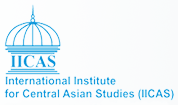
The International Institute for Central Asian Studies was established in August 1995 in Samarkand (Uzbekistan) as a direct outcome of the UNESCO Silk Roads Expeditions. The concept of the Institute was conceived during the Steppe Route Expedition in Central Asia organized within framework of UNESCO Project "Integral Study of the Silk Roads: Roads of Dialogue", a major project of the World Decade for Cultural Development (1987-1997).
Following the official establishment of the IICAS on the 5th of July, 1995, the General Director of UNESCO Mr. Federico Mayor, during his official visit to Uzbekistan, solemnly opened the Institute on 27 August, 1995 in Samarkand.
The main objectives of IICAS are to bring to the attention of the international community historical and cultural issues on Central Asia and to strengthen collaboration between local scholars and their colleagues abroad through a multidisciplinary study of the region.
To date the following countries have accepted the Agreement of the Institute, and consequently have become the Full Members of IICAS: Azerbaijan, China, Iran, Kazakhstan, Korea, Kyrgyzstan, Pakistan, Tajikistan, Turkey and Uzbekistan.
Institutions and scholars are linked to IICAS through a system of Associated Members (public or private institutions and non-government organizations of a scientific or cultural nature) and Corresponding Members individuals.
IICAS is governed by a General Assembly and an Academic Council, and has its Secretariat. The first Director IICAS was Prof. Ashraf Akhmedov (1995-2001), the representative of Uzbekistan. The second Director IICAS was Dr. Kadicha Tashbaeva from Kyrgyzstan (2002-2007). Dr. Shahin Mustafayev from Azerbaijan was the third Director of the Institute (2008-2013).
The 10th session of the General Assembly of IICAS held in Tashkent on 17th December 2013 appointed Dr. Pilho Park as the fourth Director for the term of 2014-2017on the proposal of the Academic Council.
FOR MORE INFORMATION:
Address: 19, University Boulevard str., Samarkand, 140129, Uzbekistan
Tel.: +998 66 2391558
Fax: +998 66 2391540
E-mail: This email address is being protected from spambots. You need JavaScript enabled to view it.
Website: www.unesco-iicas.org
UNESCO OFFICE IN TASHKENT
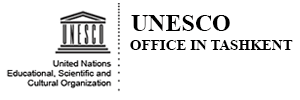
Established in the aftermath of the II World War on 16 November 1945, the United Nations Educational, Scientific and Cultural Organization (UNESCO) aims to "build peace in the minds of men".
UNESCO's action is guided by its mission statement, which states that "as a specialized agency of the UN system, UNESCO contributes to the building of peace, the alleviation of poverty, sustainable development and intercultural dialogue through education, the sciences, culture, communication and information."
The broad goals and concrete objectives of the international community – as set out in the internationally agreed development goals, including the Millennium Development Goals (MDGs) – underpin all UNESCO's strategies and activities. Thus UNESCO's unique competencies in education, the sciences, culture and communication and information contribute towards the realization of those goals.
The UNESCO Office in Tashkent represents the Organization in Uzbekistan and brings to bear UNESCO's expertise in its areas of competence in support of the country's development efforts. UNESCO pursues its work as a member of the United Nations Country Team in Uzbekistan and by building partnerships with other multilateral and bilateral development actors in the country.
FOR MORE INFORMATION:
Address: 9, Ergashev street, Tashkent, 100037, Uzbekistan
E-mail: tashkent(at)unesco.org
Tel: +998 71 1207116
Fax: +998 71 1207159
Website: www.unesco.org/new/en/tashkent/home/
INTERNATIONAL INFORMATION AND NETWORKING CENTRE FOR INTANGIBLE CULTURAL HERITAGE IN THE ASIA-PACIFIC REGION UNDER THE AUSPICES OF UNESCO (ICHCAP)
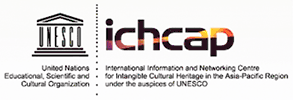
Among UNESCO's safeguarding ICH activities, the "2003 Convention for the Safeguarding of ICH" is the most comprehensive international measure with 134 nations taking part in it as of June 2011. Among the States Parties to the Convention, the Republic of Korea has practiced methodologies for safeguarding ICH through policy making efforts such as the establishment of the Cultural Properties Protection Law at the national level and the dissemination of the Living Human Treasure System at an international level. As these efforts came to fruition, UNESCO unanimously approved the establishment of the "International Information and Networking Centre for Intangible Cultural Heritage in the Asia-Pacific Region under the auspices of UNESCO" (hereinafter ICHCAP) at its 35th General Conference in 2009.
Since then, the Agreement between the government of Korea and UNESCO was signed in 2010, and finally a revision of the relevant law by the parliament of Korea toward the official establishment has also concluded in 2011.
ICHCAP's main role is to strengthen "Information and Networking" in the framework of the 2003 UNESCO Convention. In light of this, it supports activities directed toward the safeguarding of intangible cultural heritage among the 48 Member States of the Asia-Pacific region with a primary function of disseminating information and building networks in the ICH field. It also intends to help in enhancing cultural diversity in the Asia-Pacific region and promoting sustainable development throughout the region through various and effective safeguarding activities.
FOR MORE INFORMATION:
Address: 95 Seohak-ro, Wansan-gu, Jeonju-si, Jeonbuk 560-120 Republic of Korea
Tel: +82 63 2309712
Fax: +82 63 2309700
Email: This email address is being protected from spambots. You need JavaScript enabled to view it.
Web-site: www.ichcap.org





